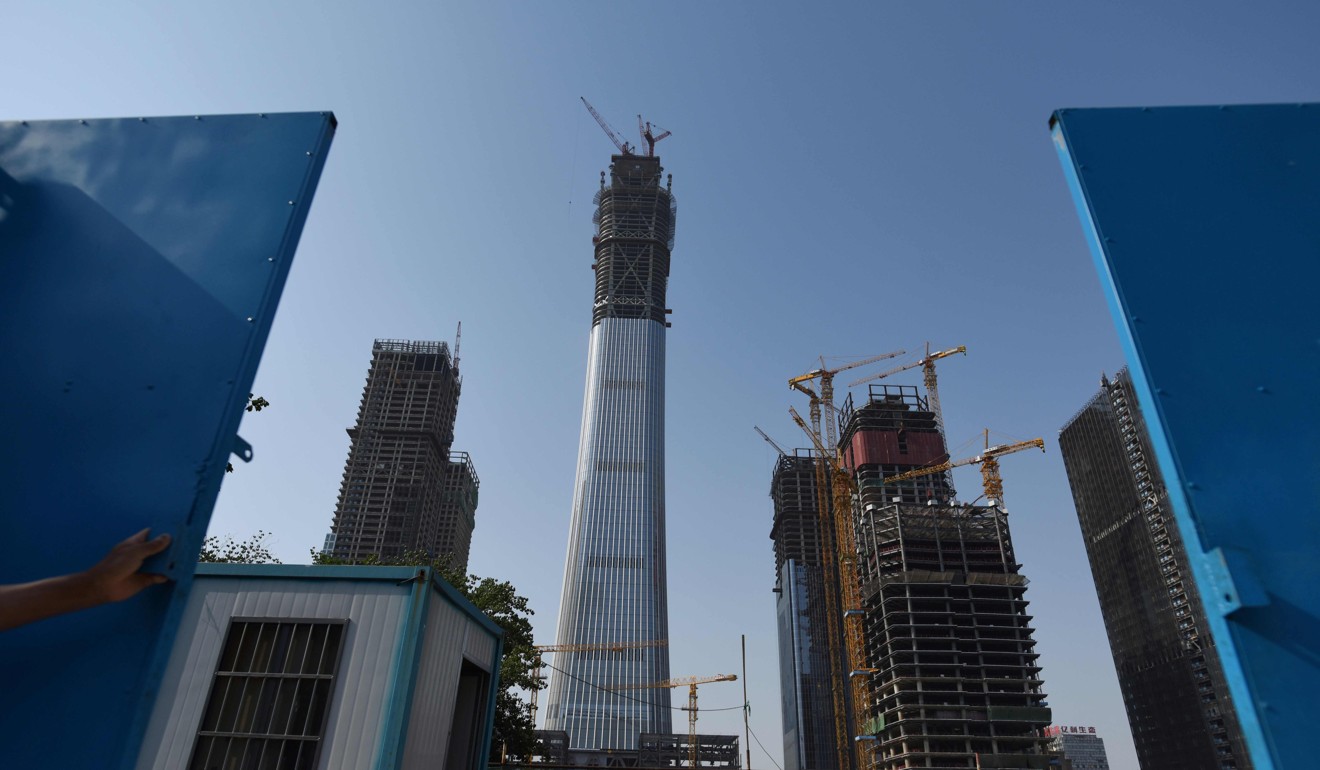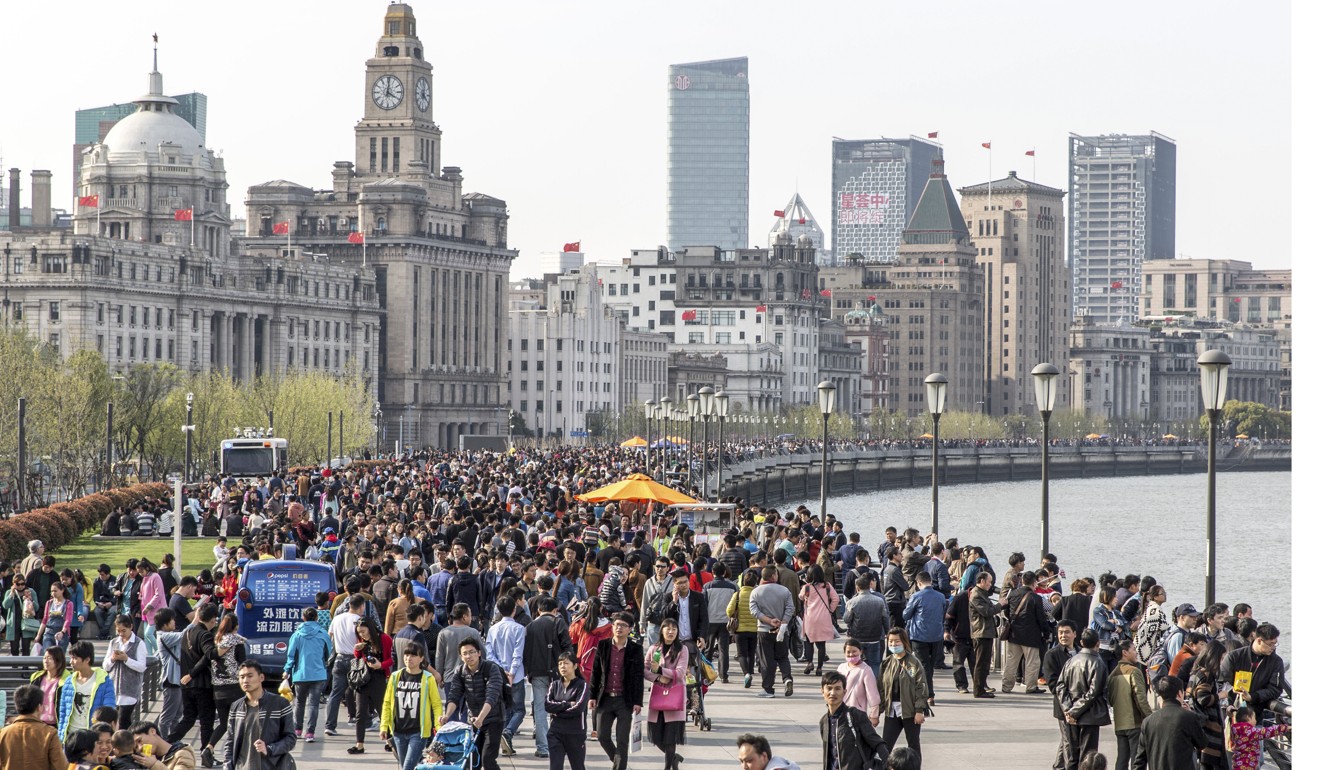
Beijing could hinder Trump’s pursuit of concessions by further intervening in China’s economy: analysts
Increased intervention in China’s markets would hamper US president’s quest to obtain trade and investment concessions during visit
Beijing is likely to increase its intervention in China’s economy after a key Communist Party congress next week, hampering any effort by US President Donald Trump to wring substantial trade and investment concessions from China during his visit to the country in November, analysts say.
Scott Kennedy, a China expert at the Washington-based Centre for Security and International Studies, told the South China Morning Post that rather than overall market liberalisation, the twice-a-decade 19th Party Congress “is likely to be followed by even greater government and party intervention in industries and markets”.
Beijing would make “modest, largely symbolic concessions” on some areas of market liberalisation ahead of Trump’s visit, Kennedy said. But “China Incorporated is likely to get more support and made more powerful, not dismantled”.
“Interventionism works and China has paid little diplomatic or economic price for it. So why not continue?” he said.
Washington sees Trump’s Beijing visit as another opportunity to push China for concessions on economic issues. Beijing’s reluctance to proceed with economic reform to avoid domestic instability in a year of a power shift would pose an obstacle for the US president who campaigned partly on a promise to get tough with China, according to analysts.
In addition to pressing China for compromises on trade and investment issues including increased market access for US companies and eliminating protectionist measures, the Trump administration has accused China of intellectual property theft.
The world’s two largest economies appeared on the verge of a trade war in July after failing to reach agreement in Washington during the first round of the US-China Comprehensive Economic Dialogue.
Markus Rodlauer, deputy director of the International Monetary Fund’s Asia and the Pacific Department, told an Asia Society Policy Institute think tank event this week in Washington that he expected no overall economic policy changes to come out of China’s party congress, owing to the ruling elite’s desire for stability as leaders are reshuffled.
“The reasonable expectation is that things won’t change dramatically,” Rodlauer said.
The congress might provide “some clues” to possible policy changes, but no specific economic policies could be set until the Economic Work Conference in December and National People’s Congress next March, the IMF official said.

Rodlauer said he wanted to be clear that the IMF has no mandate or expertise to speculate about its members’ politics.
Washington China-watchers have speculated about the extent to which China’s ruling elite will proceed with economic reform.
Four years ago, at a Central Committee session of the 18th Party Congress, the leadership pledged to let markets play a “decisive” role in the economy and unveiled a comprehensive reform agenda towards achieving “decisive results” by 2020.
The outcome so far has disappointed US observers.
“We have not seen the kind of overall economic reforms we are seeking,” said Erin Ennis, vice-president of the US-China Business Council, a non-profit group which represents 200 US firms including Apple and Goldman Sachs. “China is falling short of reforms for the benefits of foreign companies,” she told the Asia Society Policy Institute event.

Although China’s once double-digit growth has slowed, Rodlauer suggested China’s view is it has time to institute reform. Moreover, China argues that Western economic metrics such as risk analysis do not fit its fundamentally different model. That was a view articulated last month when Premier Li Keqiang hosted IMF Managing Director Christine Lagarde and other leaders of international organisations, including the World Bank and the WTO, for a round-table dialogue in Beijing.
With a huge surplus on the government’s balance sheet, sufficient foreign reserves and liquidity in its banks, China still has “a very strong system even if they have problems,” Rodlauer said.
The IMF this week raised its 2017 and 2018 economic growth forecasts for China but warned that the nation’s long-term growing debt load raised the risks of a “sharp growth slowdown”.
The IMF urged China to “de-emphasise near-term growth targets and focus on reforms that would enhance the sustainability of growth”.

